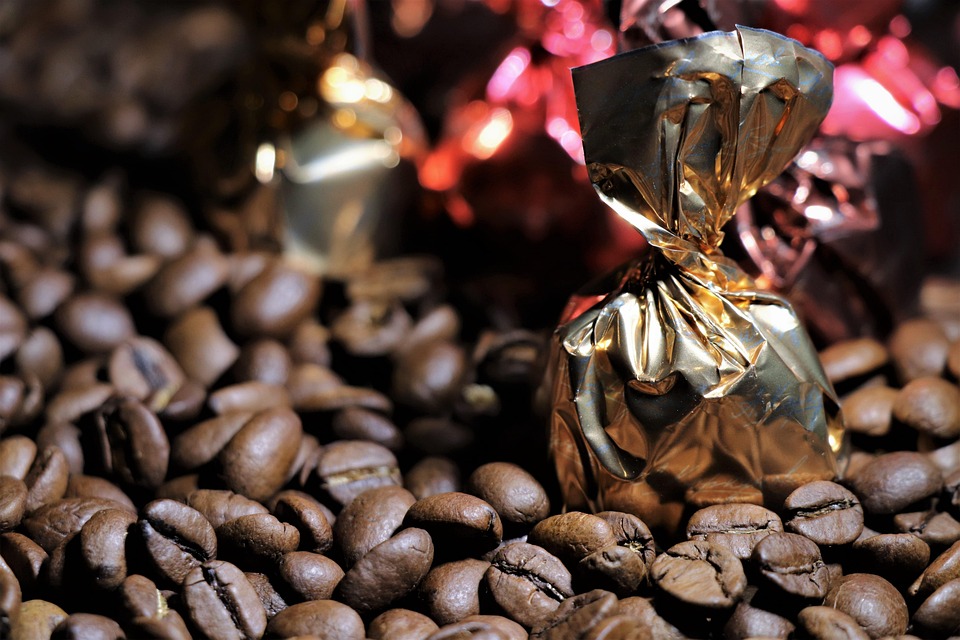Shake It Up: The Rise of Functional Nutrition Drinks for Adults
Introduction
In recent years, the beverage industry has experienced a dramatic transformation, particularly with the emergence of functional nutrition drinks aimed at adults. No longer confined to the realms of sports drinks or sugary sodas, these beverages now encompass a broad spectrum of ingredients designed to enhance health, optimize performance, and improve overall well-being. This article dives deep into the rise of functional nutrition drinks, examining the driving forces behind their popularity, the diverse ingredients that define them, and the implications for consumers’ health and wellness.
The Evolution of Beverage Consumption
The shift towards functional nutrition drinks can be traced back to broader changes in consumer behavior and attitudes toward health. With information more accessible than ever, individuals are becoming increasingly health-conscious, seeking products that not only quench their thirst but also contribute positively to their health.
1.1 Changing Consumer Preferences
As the wellness trend has exploded, consumers have sought out products that align with their health goals. According to a survey by Mintel, 62% of consumers are interested in foods and beverages that offer functional benefits, leading to a surge in innovation within the beverage market^1. This shift is evident in the rise of kombucha, adaptogenic drinks, and collagen-infused offerings.
1.2 The Impact of the Pandemic
The COVID-19 pandemic acted as a catalyst for many adults to reassess their health and wellness priorities. According to a report by McKinsey, 79% of consumers reported adopting healthier habits, and 58% expressed a willingness to pay more for healthier products[^2]. This shift directly correlates with the increased demand for functional drinks that promise immune support, stress relief, and overall vitality.
Understanding Functional Nutrition Drinks
Functional nutrition drinks are beverages formulated with certain ingredients that are intended to provide specific health benefits beyond basic nutrition. They typically include a wide array of components, such as vitamins, minerals, probiotics, adaptogens, and botanical extracts. The goal is not just hydration but also the enhancement of physical or mental well-being.
2.1 Types of Functional Drinks
-
Protein Drinks: Often made for post-workout recovery, these drinks are rich in protein and may include additional ingredients like BCAAs (branched-chain amino acids) for muscle recovery.
-
Adaptogenic Drinks: These beverages incorporate herbs and plants known to help the body manage stress and maintain homeostasis. Common adaptogens include ashwagandha, rhodiola, and holy basil.
-
Probiotic Drinks: Frequently derived from fermented ingredients, these drinks promote gut health and may contain live cultures of beneficial bacteria.
-
Electrolyte Drinks: These drinks are fortified with electrolytes to assist in hydration, especially post-exercise.
-
Botanical Drinks: Often featuring herbal and floral extracts, these beverages are designed for relaxation and overall wellness.
2.2 Popular Ingredients in Functional Drinks
-
Collagen: Known for its benefits for skin, hair, nails, and joint health, collagen is becoming increasingly popular in functional drinks.
-
Vitamins and Minerals: Essential nutrients like Vitamin C, B vitamins, and magnesium are often included for their various health benefits.
-
Caffeine: Commonly found in energy drinks, caffeine is used for its stimulant properties, often combined with other ingredients for a healthful boost.
-
Herbal Extracts: Ingredients like turmeric, ginger, and chamomile not only add flavor but also contribute to health claims regarding inflammation and digestion.
The Health Benefits of Functional Nutrition Drinks
One of the primary reasons for the popularity of functional nutrition drinks is the potential health benefits they purport to offer. However, it’s essential to approach these claims critically and recognize that while many functional beverages can complement a healthy lifestyle, they should not replace whole foods or essential dietary components.
3.1 Boosting Immunity
Many functional drinks market themselves as immune boosters, featuring ingredients like elderberry, Vitamin C, and zinc. Research has shown that these components can support immune function, especially when combined with a healthy lifestyle that includes proper nutrition and exercise[^3].
3.2 Enhancing Mental Clarity
Drinks optimized for mental performance often feature caffeine, L-theanine, and adaptogens. L-theanine, an amino acid found in green tea, has been shown to promote relaxation without drowsiness, making it an appealing ingredient for those seeking mental clarity and focus[^4].
3.3 Supporting Gut Health
Probiotics are a cornerstone of many functional drinks, providing live microorganisms that benefit gut health. Studies have demonstrated that certain strains of probiotics can help alleviate digestive issues and promote a balanced microbiome[^5].
3.4 Aiding Recovery
Physical recovery is an essential consideration for many adults, especially those who engage in regular exercise. Protein-rich beverages can aid in muscle recovery and promote muscle protein synthesis, making them a favored choice among active individuals[^6].
Market Trends and Innovations
The functional beverage market is not only expanding but also innovating. Brands are increasingly combining multiple functional benefits into one drink, creating unique offerings that meet diverse consumer needs.
4.1 Sustainability and Health
As consumers become more environmentally conscious, the demand for sustainable and eco-friendly products has surged. Brands are responding by using recycled materials for packaging and sourcing ingredients sustainably.
4.2 Personalized Nutrition
The rise of personalized nutrition—where products are tailored to individual dietary needs and preferences—has infiltrated the functional drink market. Companies are now offering tailored beverages based on various health goals, dietary restrictions, and personal tastes.
4.3 Functional Coffee and Tea
The intersection of functional beverages with traditional favorites like coffee and tea is evident in products that enhance energy levels with added nutrients, adaptogens, or probiotics.
The Role of Marketing and Branding
As the competition in the functional drink market intensifies, effective marketing and branding strategies have become crucial for companies looking to capture consumer attention.
5.1 Transparency in Labels
Consumers are increasingly demanding transparency regarding ingredient sourcing and nutritional information. Brands that clearly communicate their missions and the benefits of their products often gain a loyal following.
5.2 Storytelling and Authenticity
In an age where authenticity resonates with consumers, brands are focusing on storytelling that aligns with their values. Many successful brands showcase the origin of their ingredients and the science behind their formulations, fostering a sense of trust.
5.3 Influencer and Social Media Marketing
Influencer partnerships and social media campaigns have become vital for reaching target audiences. Brands leverage platforms like Instagram and TikTok to showcase their products in an engaging manner, capitalizing on health and wellness trends.
Challenges and Criticisms
Despite the growing popularity of functional nutrition drinks, there are challenges and criticisms that need to be addressed.
6.1 Overhyped Claims
Consumers must navigate a landscape filled with bold health claims. Not all functional drinks deliver the promised benefits, and some may contain excessive sugars or additives that undermine their health value. It’s crucial for consumers to conduct their research and consult healthcare professionals when necessary.
6.2 The Cost Factor
Functional drinks often come with a higher price tag compared to traditional beverages. As demand rises, cost-sensitive consumers may be left behind. This creates a disparity in access to healthy options, particularly among low-income populations.
6.3 Regulatory Scrutiny
The functional beverage market operates in a complex regulatory environment. Inconsistent labeling practices and health claims can lead to misinformation. Steering clear of health claims that could mislead consumers is vital for brands to maintain integrity and credibility.
The Future of Functional Nutrition Drinks
As we look ahead, the future of functional nutrition drinks seems bright, with continued innovation and consumer interest.
7.1 New Ingredients on the Horizon
We can expect to see a wave of new and unique ingredients entering the market. As research uncovers the benefits of lesser-known superfoods and botanicals, brands will likely incorporate these trending ingredients into their formulations.
7.2 Technological Advancements
Emerging technologies in food and beverage production could lead to better preservation of nutrients and flavors, enhancing the overall quality of functional drinks.
7.3 Broader Acceptance in Retail
As consumer demand for functional beverages grows, retailers are likely to allocate more shelf space to these products, making them more accessible to consumers and reinforcing the trend.
Conclusion
The rise of functional nutrition drinks for adults reflects a significant shift in consumer preferences towards health and wellness. These beverages, designed to enhance well-being, are becoming an integral part of many adults’ daily routines. As the market continues to evolve, it is essential for consumers to remain informed and discerning, ensuring that they select products that align with their health goals and lifestyles. The future of functional drinks holds promise for innovation, sustainability, and enhanced health outcomes.


























Add Comment